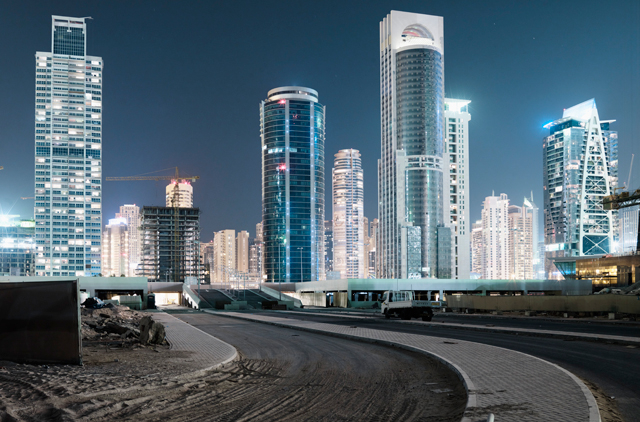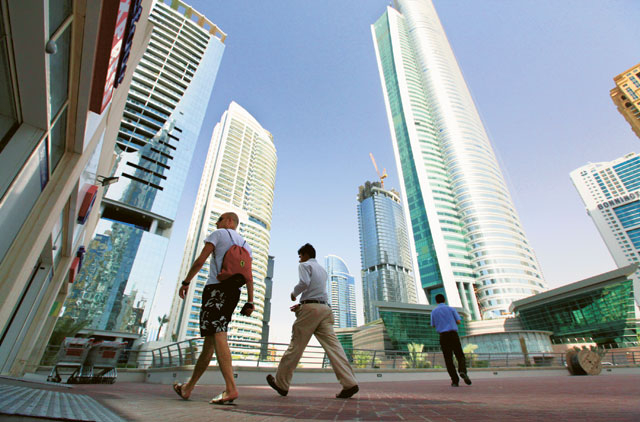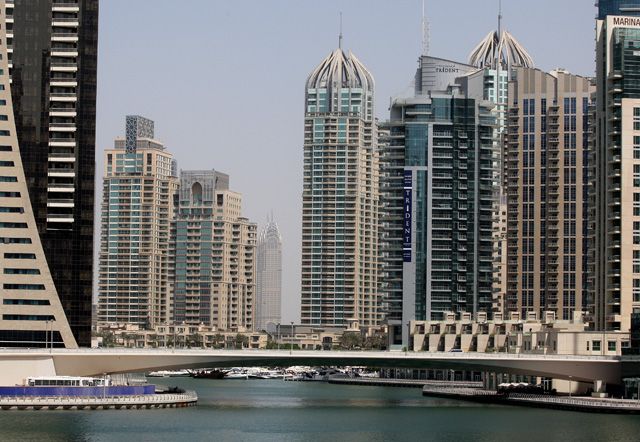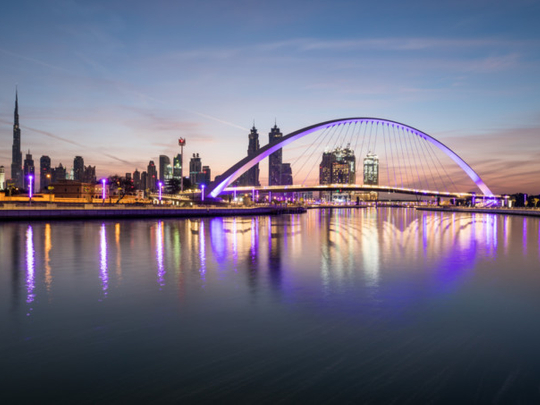Dubai: Real estate is an asset class that was beaten down big in the aftermath of the pandemic. Experts now forecast that it will make a comeback but with a slight lag. But what does this mean for investors and buyers?
With the current pandemic backdrop, it has been widely recommended that those who are looking to enter the market for the first time should have slightly longer-term outlook as various macro factors are in the play such as availability of funding, banks’ risk appetite to lend, and revival of the job markets.
Pandemic-related property flux ease
However, with wider pandemic-related uncertainty dissipating globally with multiple developments around a potential vaccine, an economic rebound is in sight – which results in recovery in all facets of an economy. This is excellent news for real estate investors in the UAE, particularly the real estate segment – that makes up nearly 40 per cent of economic growth.
So if one has the liquidity and means to support a mortgage now, property consultants and analysts are currently recommending that now is a great time to buy as valuations are attractive and cost of real estate-related funds are at the lowest.
However, before we elaborate on the current prospects surrounding investing in real estate funds and related stock market assets, let’s first discuss an integral part to investing in them. As investing in market-traded assets are highly-dependent on how the UAE property market is currently performing, it is vital to first gauge how investor-friendly the sector is right now.
UAE property now more attractive
The UAE’s real estate industry last week registered improvements in global property consultant and investment manager JLL’s 2020 Global Real Estate Transparency Index (GRETI).
JLL’s GRETI 2020 provides a reliable measure of real estate market transparency and is a useful indicator of a city’s overall ‘real estate investment health’. In this year’s edition, the index reveals the increasing attractiveness of Dubai and Abu Dhabi as global investment hubs within the region.
Affordability within Dubai compared to similar global cities is valued by multiple experts as ‘excellent’ and it should also be noted that the UBS Global Real Estate Bubble Index marked Dubai as ‘fair valued’ compared to cities like New York, London and Paris.
UAE expats among top investors
Indians topped the investors’ list in Dubai’s real estate sector last year, according to official figures released last week. A total of 5,246 Indians has invested in the property market in the emirate as per the Dubai Land Department (DLD) records, followed by 5,172 Emiratis.
As many as 2,198 Saudi investors have chosen assets in Dubai. Chinese investors in Dubai real estate number to 2,096 followed by the UK with 2,088. The investors from Pakistan came sixth with 1,913 followed by Egypt (955), Jordan (855), the US (682) and Canada (678).

Image Credit: Corbis
Expats lead in investment value
Indians also topped in investment value, injecting more than Dh10.89 billion last year into the emirate’s property sector, followed by Dh8.1 billion by Emiratis, Dh4.92 billion from Saudi Arabia, Dh3.97 billion from the British investors and Dh3.65 billion by the Chinese nationals.
Investors from Pakistan pumped in Dh2.79 billion into the emirate’s real estate sector last year, followed by Jordan (Dh1.57 billion), Egypt (Dh1.42 billion), France (Dh1.1 billion) and the US (Dh1.25 billion).
Shine seen after a few plateaued years
It’s been increasingly evident that the real estate industry in the UAE has had a rocky few years. Weakened consumer sentiment, an oversupply in some locations, and a slowdown in government spending as result of lower oil prices had all combined to produce an uncertain outlook – and that was before the arrival of the pandemic earlier.
While some markets, such as Sharjah, and some developers have certainly outperformed others, the industry as a whole, matter experts view, is undergoing something of a reset. This is important in the context of the UAE’s overall economic picture, where the housing market plays an outsized role. (In 2018, Dubai’s property segment contributed 13.6 per cent of GDP, while the figures for Abu Dhabi and Sharjah respectively were 14.4 per cent and 10.7 per cent.)
All things in buyer’s favour now
If you are a prospective house buyer in the market, all things are going in your favour now. Low mortgage interest rates, higher LTVs (loan to value), reduced service charges and attractive valuations make for a win-win situation.
Following a period of job losses, salary cuts, uncertainty about job prospects and tightening of credit standards – which was seen adversely affecting demand for property, buying appetite is seen returning to market as dire economic conditions ease. So, with improving clarity on cash flow for the near to mid-term future, as expected, analysts view the property market on track for a rebound.
Why is it a buyer’s market now?
Here are the factors that are currently making UAE real estate sector a buyer’s market:
- • Low mortgage interest rates
- • Higher loan to value ratio available
- • Affordable property sales prices
- • Reduced service charges
- • Attractive price valuations
- • Developer incentives such as service fee waivers, free appliances, etc
Does this mean market uncertainty has passed?
Both the rental and sales market in Dubai was expected to remain under downward pressure due to the market uncertainty brought on by the pandemic. However, it has become increasingly evident, particularly with the potential advent of an imminent vaccine, that market uncertainty has eased and things are finally looking up for the sector.
A potential contraction in income levels did make some buyers delay their decision making at the onset of the pandemic, data analysis showed. Besides a drop in demand, the limitations to physically view properties and conduct business also led to extended transaction timelines.
However, lower entry price points, attractive interest rates and the favourable loan-to-value ratio due to the increase of five percentage points for first-time buyers (which means that they have to put up less cash as down payment) have improved affordability in the secondary sales mortgage market.
Moreover, several developers are also offering service charge waivers for up to two years after handover, free kitchen appliances and gadgets as incentives to attract buyers in a down market. This is incentivising property purchasers to take advantage of the current improving market conditions.
Attractive borrowing rates attract buyers and the industry expects banks to step up their exposure to real estate and the construction sectors, a spike in re-mortgage activity due to attractive borrowing rates and other promotional discounts being offered.
Owing to the current turmoil in the global economy as a result of COVID-19, UAE banks did tighten their lending appetite based on client profiles and industry segments that struggled the most during the pandemic, which led to existing customers deferring current monthly obligations and a reduction in banks’ earnings.
With employee salaries returning to normal as economies and businesses return to pre-pandemic normalcy, mortgage consultants note that banks in the region are competitive with their lending rates just as they have historically reduced pricing to attract potential buyers in the market. Property consultants also reveal a surge in pent-up demand for rental relocations as tenants look to reduce their rental outflow.

Image Credit: Oliver Clarke/Gulf News
When will your investments give better returns?
At the peak of the current health crisis, the prospects for capital appreciation of property in Dubai were low, and prices were expected to go down further if the pandemic lasts longer. However, with multiple analysts foreseeing a return in demand, and prices staying low for now, this would make it an ideal time to invest if you haven’t and hold on to assets if you have.
UAE real-estate prices have come down by more than 10 per cent in the first quarter of 2020 compared to the same quarter last year, according to Marmore MENA Intelligence. It also noted that Dubai apartment values have come down by nearly 40 per cent on average since the peak in 2014.
How should you fund your investments?
Most industry experts recommend that house buyers use a mix of cash and mortgage to fund their property purchase. As a rule of thumb, an investor can pay 30 to 50 per cent of the property value up-front and tie up the remaining payment to either a fixed interest or floating rate plan.
If a buyer can generate higher than 9 to 10 per cent return on their cash by investing it elsewhere, then they should probably use a mortgage to finance their homes, particularly since interest rates are low right now.
Verdict: Current UAE property outlook favourable for buyers
Favourable bank rates and dropping prices have meant that investors are once more looking to the UAE’s real estate sector. There is pent up demand in Dubai’s property market and real estate has rebounded this summer with buyers looking to capitalise on record low prices.
There has never been a better time to take advantage of the market, experts reveal, but investors need to identify specific assets, predominantly villas in prime locations that are currently undersupplied.
Initiatives, such as the introduction of online property transfers from Dubai Land Department or the UAE Central Bank’s economic stimulus package, or favourable payment options from developers have supported the market.

Image Credit: Francois Nel/Gulf News
Investment in UAE property-related market assets
Now let’s look at real estate from the point of view of a market investor. For both the seasoned and newbie investor, this could be just the right time to invest in some property-related funds in the UAE, with investment experts considering the current backdrop as a clear opportunity to come out of the pandemic with a top-tier asset bought at a heavy discount.
Asset managers view that the property price correction in the UAE has triggered many investors to explore alternate investment avenues to preserve and grow their wealth, which ironically, made the current downturn in the real estate sector also an opportune time to invest in a Real Estate Investment Trust (REIT).
REITs allow investors exposure to the real estate sector without the risk and hassle of directly acquiring an asset. As they are listed on a stock exchange, investors can purchase or sell any number of shares depending on their risk appetite and capital commitments at the time. As a result, real estate comes within the reach of a much larger pool of potential investors.
REITs are considered a much safer option
Compared to public real estate securities listed on a stock exchange, market veterans view REITs as a comparatively safer option. Whilst some real estate developers pay out dividends to shareholders, many of these dividend payments are funded through off-plan sales revenues and proceeds from land bank sales, which can be a threat to the future of the operations of the developers.
On the other hand, REITs are governed by certain rules when it comes to dividend pay-outs and maintaining cash flows – REITs must distribute at least 80 per cent of net income to investors as dividends, ensuring a steady income stream.
Al Mal Capital REIT this month became the first real estate fund to be listed on the Dubai Financial Market (DFM) bourse. There are two other REITs – Emirates REIT launched in 2010 and ENBD REIT in 2017 – but both are listed on Nasdaq Dubai.
Al Mal REIT is expected to have a net dividend yield above 7 per cent. According to the management, the real estate portfolio is diversified and backed by secure long-term leases.
For yield-starved income investors, analysts consider Al Mal REIT as a good choice to park a part of their investments. Retail investors who cannot afford big-ticket real estate deals can partake in this offer as the minimum investment size is only Dh10,000.



